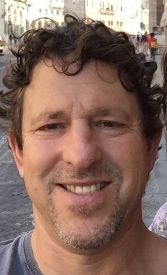Neutrophil Priming in the Circulation Amplifies Effector Function That Exacerbates Psoriasis

Principal Investigator: Scott Simon, Ph.D.
Institution: University of California, Davis
Grant Mechanism: R01 Bridge Grant
Funding Amount: $100,000
Project Start Date: February 1, 20223
Project End Date: January 31, 2024
Status: Concluded
Keywords: Psoriasis, Basic Science, Clinical Research, Cell Signaling, Biomarkers, Inflammation, Immunology, Disease Etiology
Project Summary:
Neutrophils are a primary line of defense against infection and there’s heightened interest in their role in psoriasis pathology. Biological therapies have shown great efficacy in relieving psoriatic skin inflammation, but they diminish immunosurveillance by neutrophils and therapy cessation often results in recurrent skin eruptions at identical sites. This project addresses how cytokines and damage associated molecular patterns (DAMPS) released during subclinical flare-ups prime neutrophils in circulation. This results in more efficient recruitment into skin, kickstarting a positive feedback signaling circuit that exacerbates disease progression. We aim to elucidate this circuit by analyzing surface receptors and signaling mechanisms that facilitate a neutrophil’s journey from circulation to inflamed skin using vascular mimetic microfluidic chips. By comparing patient’s blood with healthy subjects we will assess whether disease progression associates with neutrophil’s capacity to migrate into skin and release inflammatory enzymes and oxidants.
How will your project help improve the lives of the 125 million affected by psoriatic disease?
Discovery of novel biomarkers on neutrophils that predict disease severity will facilitate more personalized therapies to treat psoriasis.
Why is psoriatic disease research important to you, personally? What role will this award play in your research efforts or career development?
Neutrophils are primary inflammatory mediators of psoriatic diseases and I have dedicated my scientific career to elucidating their function in health and disease.
Researcher Profile:
The Simon laboratory studies the innate immune mechanisms governing inflammation and infection. The laboratory develops technologies to delve into the force and molecular dynamics by which neutrophils and monocytes recruit to inflamed endothelium and respond to tissue insult. Imaging technologies are developed to delve into the multistep sequence by which leukocytes roll-arrest and transmigrate to a site of acute inflammatory tissue insult. Our strategy is to mimic the hydrodynamic shear, chemokine gradients, and adhesion molecule presentation using recombinant protein substrates and endothelial monolayers in microfluidic-based lab-on-a-chip devices that enable experiments to be performed in reduced systems accessible to real-time observation.
The lab is currently studying the neutrophil response to acute inflammatory stimuli and also the Staphylococcus aureus bacterial infection that governs the innate immune response. Primary goals are to not only develop translatable strategies to overcome the intractable problem of antibiotic-resistant S. aureus skin infections in immunodeficient subjects, but also to train bioengineering and immunological scientists in requisite skills.
Dr. Simon's lab has trained dozens of diverse Ph.D. graduates over the past two decades. It fosters an inclusive and supportive environment for acquiring skills to pursue successful careers in academics or industry. Through weekly lab meetings and one on one training at the bench, they provide rigorous biomedical training. A hierarchical approach in which postdocs and senior graduate students take on responsibilities of working with newer graduate and undergraduate trainees facilitates a robust learning and working experience.